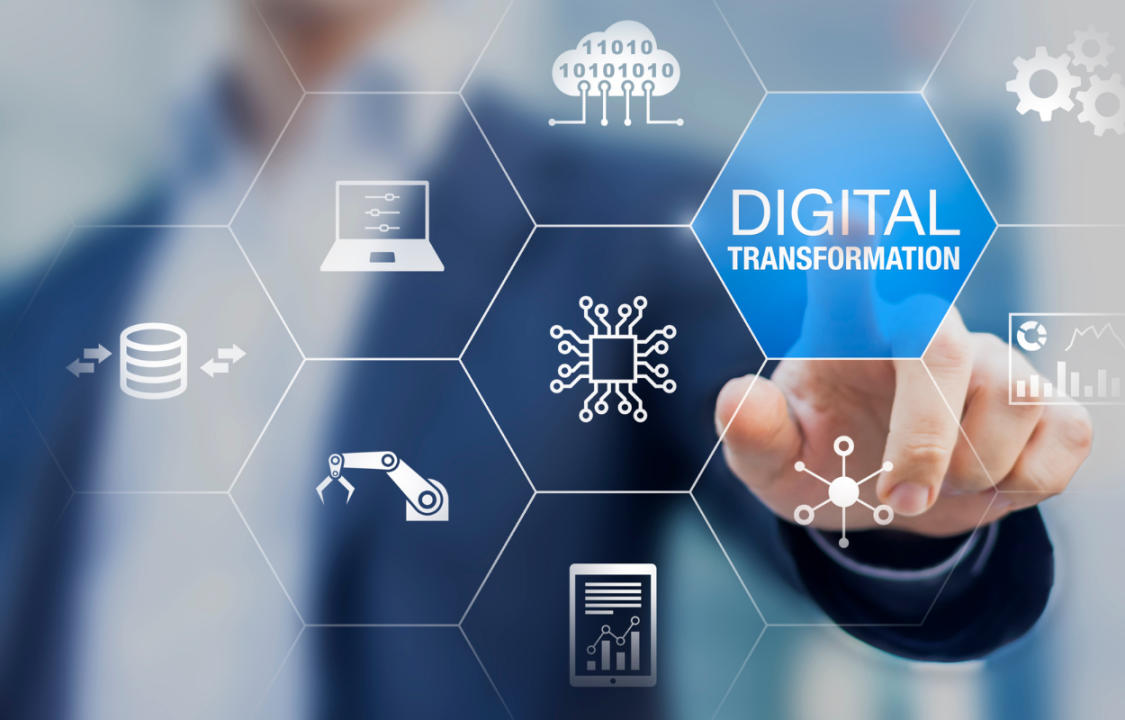Navigating the Transformative Power of Digitalization

In today’s rapidly evolving world, “digitalization” has become ubiquitous, permeating nearly every aspect of our lives. From how we communicate and work to how we shop and entertain ourselves, digitalization has fundamentally transformed how we interact with the world around us. But what exactly is digitalization, and why does it matter? In this article, we’ll explore the concept of digitalization’s impact on society and how individuals and businesses can navigate and harness its transformative power.
Understanding Digitalization:
Digitalization refers to using digital technologies to transform traditional analog processes into digital ones. It involves the integration of digital technologies into all aspects of business operations, resulting in increased efficiency, improved decision-making, and enhanced customer experiences. At its core, digitalization is about leveraging technology to streamline processes, unlock new opportunities, and drive innovation.
The Impact of Digitalization on Society:
The impact of digitalization on society has been profound, reshaping how we live, work, and interact. One of the most significant changes digitalization brings is the democratization of information. With the proliferation of the internet and digital devices, data is now more accessible than ever, empowering individuals with knowledge and enabling them to connect with others across the globe.
Furthermore, digitalization has revolutionized industries ranging from healthcare and education to finance and transportation. For example, telemedicine has made healthcare more accessible and convenient, allowing patients to consult with doctors remotely. In education, digitalization has opened up new avenues for learning, with online courses and virtual classrooms making education more flexible and inclusive.
In the business world, It has transformed how companies operate, enabling them to streamline processes, improve productivity, and reach new markets. It has become a cornerstone of modern business strategy, from e-commerce platforms that allow businesses to sell their products globally to cloud-based software that facilitates collaboration and communication.
Navigating the Digital Landscape:
While it presents countless opportunities, navigating the digital landscape can be daunting, especially for individuals and businesses unfamiliar with technology or resistant to change. However, by embracing digitalization and adopting a proactive approach, individuals and organizations can harness its transformative power and thrive in the digital age.
Embracing Digital Literacy:
One of the first steps in navigating the digital landscape is to develop digital literacy – the ability to use, understand, and evaluate digital technologies effectively. This involves familiarizing oneself with essential digital tools and platforms like email, social media, web browsers, and more advanced technologies like data analytics and cloud computing.
Adopting a Growth Mindset:
In addition to acquiring digital skills, adopting a growth mindset is essential – a belief that one’s abilities and intelligence can be developed through dedication and hard work. In digitalization, this means being open to learning new technologies and adapting to change rather than being afraid of it.
Leveraging Digital Tools and Platforms:
To fully harness the transformative power of It, individuals and businesses should leverage digital tools and platforms to streamline processes, enhance productivity, and drive innovation. Whether using project management software to coordinate team projects or employing social media marketing to reach new customers, countless digital tools are available to help individuals and businesses succeed in the digital age.
Prioritizing Cybersecurity:
Cybersecurity has become a critical concern as more aspects of our lives become digitized. Individuals and businesses must prioritize cybersecurity by implementing robust security measures, such as using strong passwords, encrypting sensitive data, and keeping software up to date. Additionally, educating oneself and employees about cybersecurity and practicing safe online behavior is essential for protecting against cyber threats.
Conclusion:
In conclusion, digitalization is reshaping the world as we know it, fundamentally altering how we live, work, and interact. While the rapid pace of technological change can be daunting, it also presents countless opportunities for individuals and businesses to innovate, grow, and thrive. By embracing digitalization, developing digital literacy, adopting a growth mindset, leveraging digital tools and platforms, and prioritizing cybersecurity, individuals and businesses can confidently navigate the digital landscape and harness its transformative power to create a better future for all.





